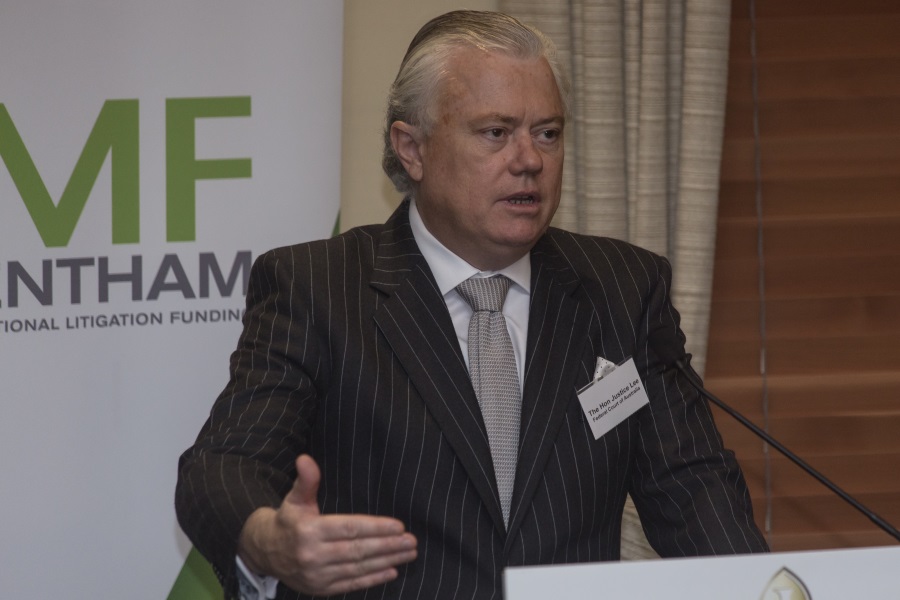Do courts have the power to adjust litigation funders' returns?

Hundreds of millions of dollars of claims have been successfully resolved through class actions supported by litigation funders in Australia over the last 10 years, but the rules governing such actions are still being written. Australia’s leading funder, IMF Bentham Limited, has collaborated with the University of New South Wales to support research into important issues at the cutting edge of class action litigation. Some of these important issues were debated at a recent conference held under the auspices of the IMF Bentham Class Actions Research Initiative with UNSW.
The conference examined three ‘hot topics’ in class actions today including:
- Whether the courts have the power to adjust litigation funders’ contractual commission rates;
- Whether current arrangements for distributing class action settlements are fair and efficient, and;
- How to ensure that class action litigants can finally and completely resolve their differences and where appropriate, avoid further litigation.
The topics examined at the conference have been summarised by IMF Bentham Senior Investment Manager, Wayne Attrill, over a three-part series.
Altering funders’ returns
The first topic was discussed by his Honour Justice Michael Lee[1], who was appointed to the Federal Court in March this year after a distinguished practice, including being retained by applicants as Senior Counsel in Australia’s largest shareholder class actions.
His Honour referred to three recent decisions of the Federal Court to the effect that, when deciding whether to approve a class action settlement as being ‘fair’ and ‘reasonable’ to class members as a whole, the Court has the power, if it thinks fit, to vary the percentage of the settlement sum that is payable to the litigation funder.[2] The percentage is set under contracts the funder signed with class members at the outset of the litigation.
His Honour noted that the views he expressed were neither his personal opinions nor those of the Court. However, “the position remains unresolved as to the source of any power to vary funding agreements and (assuming the power exists) the principles that should guide the exercise of discretion.” While recognising that genuine concerns have been raised in a small number of settlements that legal costs and funders’ returns have left little over for class members to share, so that the courts are appropriately scrutinising the cost of class actions, he sought to raise “a few interconnected issues which might form part of that debate.”
These issues raise questions over the Court’s asserted power to alter funding agreements, in the absence of the parties’ consent, and include:
- the carefully thought-out ‘integrated scheme’ or ‘common enterprise’ that exists between class members and a litigation funder which cannot easily be tinkered with at the end of the litigation and which is not analogous to the Court’s power to supervise lawyers’ costs;
- the cardinal importance the law places on enforcing contracts which have been freely entered into and, conversely, that any hardship that might be caused to a class member by holding them to their bargain is an individual matter that is not suited to a broadbrush approach that varies all contracts; and
- the difficult question of just how the Court would, in practice, determine what is a fair percentage for a funder to charge in all the circumstances of the case, asking “what are the appropriate economic comparators?”
The Court’s power to retrospectively alter the terms of the bargain struck, before the class action has begun, between a litigation funder and class members is likely to be contested by a litigation funder in a future case. It may ultimately be resolved by the High Court of Australia which to date has taken a positive view towards the development of litigation funding, exemplified by the Court’s 2006 Fostif decision which declared that litigation funding was not an abuse of the Court’s process. His Honour’s discussion points will no doubt inform future debate on this important issue.
To watch the Hon. Justice Lee’s full keynote address from the IMF Bentham and UNSW Class Action Conference, from 1 June 2017, please visit IMF’s Class Action Centre.
[1] The Hon Justice MBJ Lee, ‘Varying Funding Agreements and Freedom of Contract: Some Observations” (Speech delivered at the IMF Bentham/UNSW Class Actions Conference, Sydney, 1 June 2017).
[2] The three decisions are: Earglow Pty Ltd v Newcrest Mining Ltd [2016] FCA 1433 (Murphy J), Blairgowrie Trading Ltd v Allco Finance Group Ltd (Receivers & Managers Appointed) (In Liq) (No 3) [2017] FCA 330 (Beach J), and Mitic v Oz Minerals Limited (No 2) [2017] FCA 409 (Middleton J).